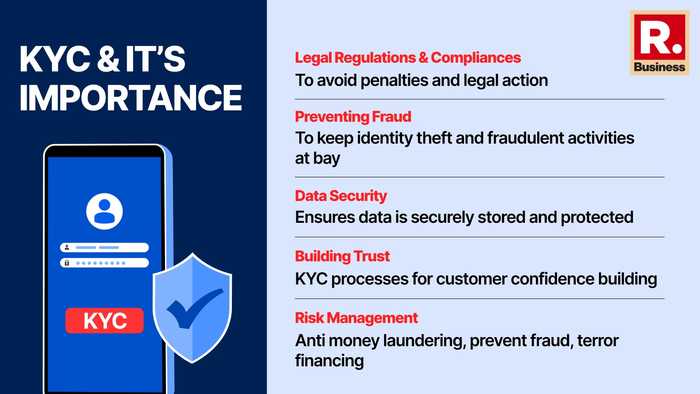Published 21:57 IST, February 28th 2024
RBI's directive on KYC is to ensure security, transparency, and fiscal prudence in digital payments.
Advertisement
Unauthorised customer onboarding: Filling out finance-related documentation, or KYC (Know Your Customer) documents, might not be the most desirable experience for modern-age customers. However, KYC is an essential step in ensuring security, transparency, and fiscal prudence concerning the financial laws of the land. In the wake of the digital payments space and a rampant increase in cyber financial crimes, the role of KYC becomes imminent.
Apart from putting the end user in a quest for furnishing necessary documentary proof, what role does KYC play in ensuring data privacy and protect financial frauds? Republic Business takes a deep dive.
Advertisement

Fintech companies, in particular, have been feeling the heat in the last few months as the RBI has cracked down on many fintech companies whose users' KYC details do not comply with the legal requirements.
Advertisement
Commenting on the loopholes regarding customer onboarding by the third-party intermediaries of the Paytm Payments Bank, investment analyst Kishore Subramanian said for fintech businesses, compliance is quite complex. “The fintech companies have to meet KYC requirements, perform anti-money laundering (AML) screening, and take preventive measures against fraud, failing to do so might be catastrophic for them,” Subramanian further added.
Data security
The prudence in KYC documentation is imperative and crucial for fintech companies. In terms of legal regulations and compliances, the Reserve Bank of India (RBI) mandates stringent KYC norms for financial institutions, including fintech companies.
Advertisement
“Adhering to these regulations is crucial to avoid penalties and legal repercussions,” said Subramanian, who heads a high-level panel on financial economy. The KYC procedures enable fintech companies to verify the identity of customers and ensure that they are who they claim to be. This helps in preventing identity theft and fraudulent activities on the platform, said the expert.
Besides, KYC processes involve handling sensitive customer information. Implementing robust KYC measures ensures that this data is securely stored and protected from unauthorised access or misuse
Advertisement
“Conducting thorough KYC processes helps in building trust among customers,” said the panel head Subramanian, adding that the seriousness of a company to take security and privacy seriously, results in gaining the customers to trust the platform with their financial transactions.
Risk management
The KYC helps fintech companies assess the risk associated with each customer. By verifying the identity and background of customers, companies can identify potential risks such as fraud, money laundering, or terror financing, quipped Subramanian.
Advertisement
“Adhering to the stringent KYC regulations may be challenging for a lot of fintech companies but the vast documentation and compliance processes are set to cause lower customer conversion rates and increase drop-offs,” said Subramanian. However, KYC regulations by definition must introduce a certain level of friction, he added.
“It’s this friction that helps businesses identify potential instances of fraud, identity theft, and other financial crimes,” said the financial expert Subramanian, while pointing to a recent RBI regulation.
21:57 IST, February 28th 2024